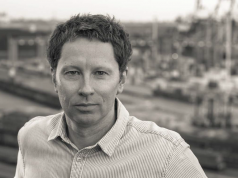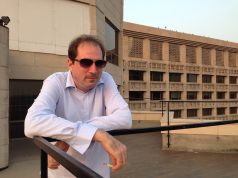When I look at someone’s face, I can’t highlight the nose, eyes or lips separately. I like or dislike it all together. That’s also the way I feel about Odessa.
As an architect, I know that the condition of the city mirrors the health of society. If you ask me what would I change or improve in Odessa, I will answer: the way people think. I do not know of any other way to make the city better than to change its citizens for the better. Unfortunately, that won’t happen overnight. The process will take many years — in our case, several generations at a minimum.
Today, the list of challenges facing Odessa is quite long. The most salient issues to deal with are the condition of the engineering systems inherited from the Soviet Union, the serious transport problems and, of course, the need to preserve the architectural heritage of the 19th and 20th centuries. These problems didn’t appear yesterday, yet we continue to pretend that everything is fine and we have nothing to worry about.
Construction and development are not synonymous of course. In its relations with the city, today’s construction industry behaves like a parasite. Instead of developing new areas and carrying out delicate work on Odessa’s architectural heritage, businessmen continue to transform the city’s last public spaces into building sites. In order to increase the profitability of their enterprises, they use the city’s old engineering systems, rather than building new ones. That approach is leading to an engineering catastrophe for the city center. It also does not provide any opportunity for real development of less central neighborhoods such as Moldavanka, Slobodka and Peresyp.
Relocating the Port of Odessa away from the historic center is also one of the city’s major challenges. At the same time, our architectural heritage is not improving. But there is a unique precedent here also: a crisis can actually bring benefits for architecture. Were it not for the global economic crisis in 2008, the Revolution of Dignity in 2014, and the War in the East after that, Odessa would look much worse than it does now. But, fortunately, these events have put the brakes on many destructive business projects. It is time for the next generation to cooperate and develop a “reanimation strategy” for Odessa
Social processes that have begun in the city prove that our society is slowly beginning to recover. People are starting to believe in themselves and to realize that the only way to stop being spectators to this horror is to get involved in making a positive contribution.




































